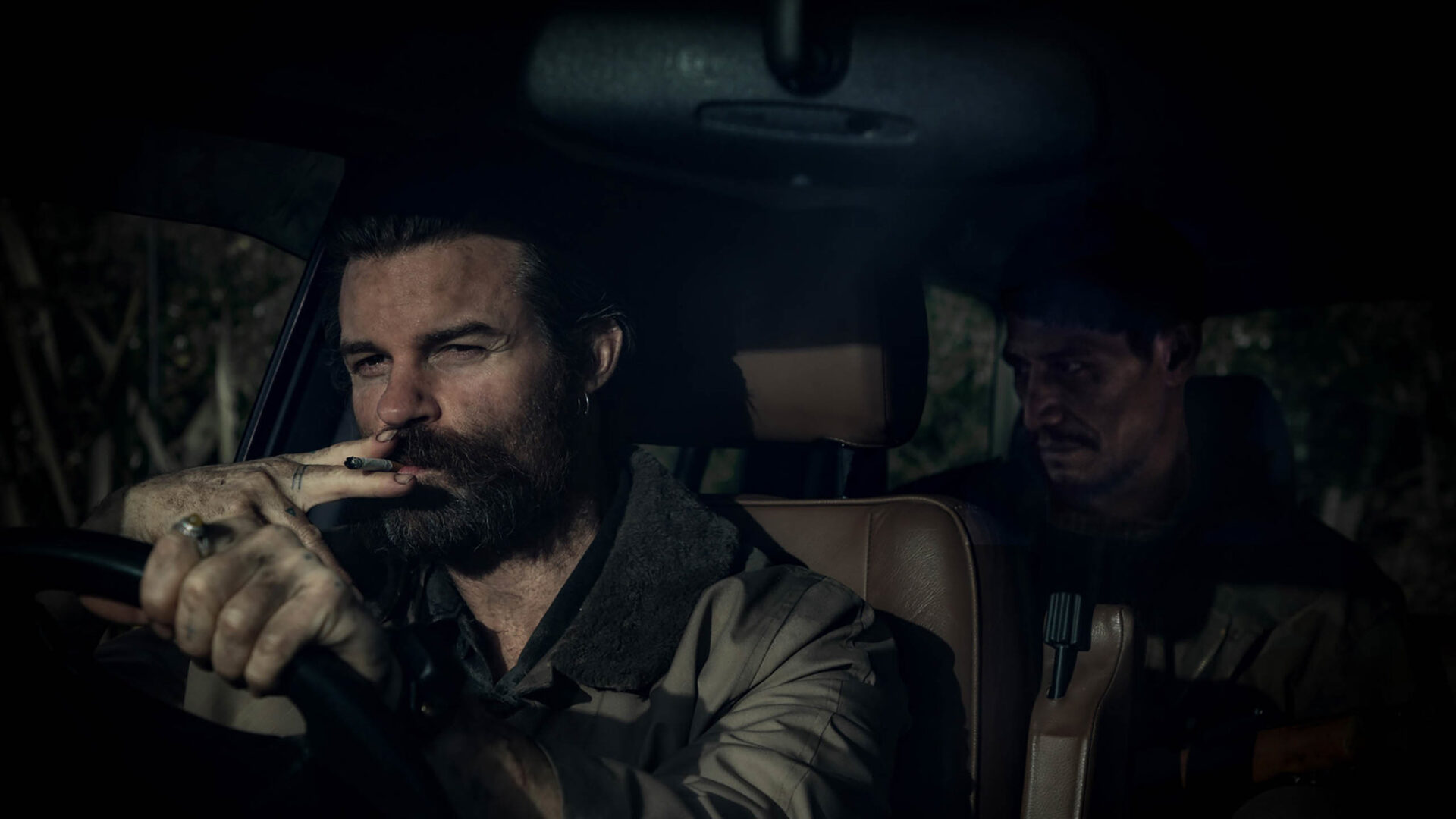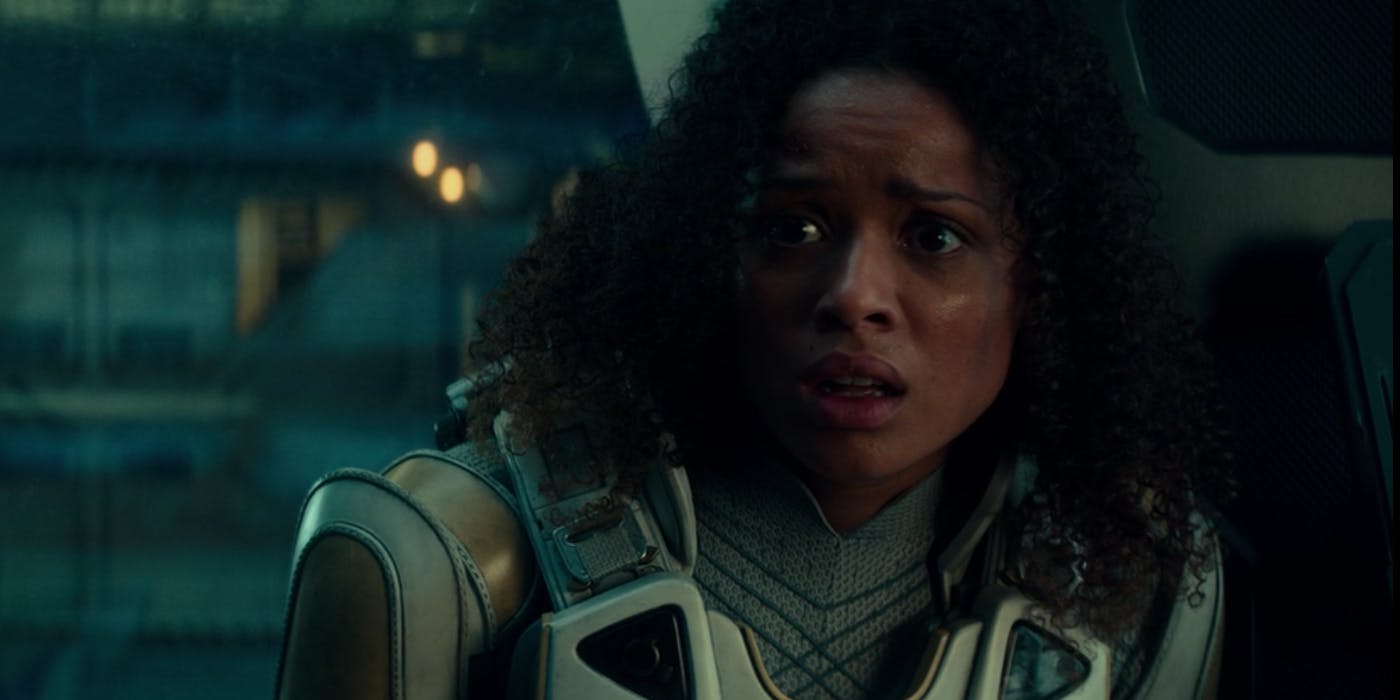Every human life is a unique variation and sequence of locations, emotions, and events. No two people, in all the billions and billions of us who call this world home, have ever had the same experience. Some are fortunate enough to be remembered in history books and scholarly materials; others simply leave their marks on those close to them. But in the immense uniqueness of life, there are still patterns, similarities that we share with those around us and those who came before us. To recognize these patterns, this history even, is to better understand the world, ourselves, and our time spent in it. Lynn Gunn knows this, and her deep connection with herself and the history to which she is drawn has combined with the musical prowess of herself and fellow band members Alex Babinski and Brian MacDonald to create a titanic force in the form of PVRIS’s sophomore album, All We Know Of Heaven, All We Need Of Hell.
The album takes its name from a poem by Emily Dickinson. More specifically (and a testament to Dickinson’s vast catalogue), it is named after a line in the 96th poem of part one of five in The Complete Poems of Emily Dickinson. Gunn discovered Dickinson the way a large number of people do. “We learned about her in high school and middle school,” she recalls, “but I hadn’t really appreciated it or gotten into it.”
It wasn’t until years later that the beauty of Dickinson’s work struck her. After a long day of shooting a music video, Gunn was watching a TED Talk and the poem came up again—the first of many instances of the past manifesting itself during the process of the album’s creation. Gunn’s fascination with Dickinson’s life comes from her strong connection to the Victorian era of the late 19th century. She doesn’t believe it’s a coincidence, either. “I truly believe in past lives and reincarnation,” she explains. “I really think I had a past life in that period.” With such a strong connection, it’s no surprise Gunn found Dickinson again. Gunn describes her feelings towards the period as comforting, but with an underlaying sadness. It’s no wonder then that she was drawn to the poetry of Dickinson and of Sylvia Plath, who while not living in the Victorian era, draws upon that same sadness in her work.
Tone wasn’t the only lesson Gunn took from Dickinson and Plath. She was also inspired by their unflinching honesty. Throughout All We Know Of Heaven, Gunn holds nothing back. Whether anger, sorrow, despair, or any other emotion, Gunn wears it on her sleeve. The most telling line on the entire album is in the chorus of mid-summer single “What’s Wrong,” in which Gunn sings “Don’t need a metaphor for you to know I’m miserable.” This decision was made shortly after the release of PVRIS’s debut album White Noise in 2014, as the band began writing for the album that would become All We Know Of Heaven almost immediately after their debut released. “One of the biggest things that I was struggling with the past few years was being straightforward and being vulnerable with my feelings,” Gunn says, and her desire to be forthright manifested itself in the songwriting for the album. An album with the explosive feeling that PVRIS has brought needs the music to match, and Gunn, Babinski, and MacDonald were more than up to the task. Surrounded by pianos, organs, and multiple drum sets, the trio created the booming, massive soundscape on the album, a sonic blast fitting the intensity of Gunn’s emotions.During the recording of the album and the filming of the music videos, life and the past didn’t just have a passive presence in the band’s work. Sometimes these forces took a decidedly more active path towards making their presence known. The album was recorded in a studio that used to be a church with a reputation for haunting, and Gunn confirms some unexplainable events occurred. “It was absolutely haunted,” she says, “We’d feel cold spots everywhere, we’d hear footsteps.” Gunn and one of the engineers even set up “ghost traps” around the basement of the building without anyone else’s knowledge to see what they could pick up.
The music video filming locations held similar experiences. The videos for “Heaven” and “What’s Wrong” were filmed at The National Hotel in Nevada City, California, the Crocker Art Museum in Sacramento (both built in the mid-to-late 1800s), and Preston Castle in Ione, California, all of which have extensive reputations of hauntings.
Gunn had her own experience at Preston Castle while filming “What’s Wrong.” For part of the video, the band had to have prosthetics put over their eyes, meaning they couldn’t see and had to be led around. Gunn recalls waiting in a hallway for shooting to start when some spookiness occurred. “All of a sudden I felt somebody touch my shoulder, and I thought it was Brian or Alex saying hi, so I turned and looked over and said ‘Hey guys!’” she recalls. The kicker on this story? “The two people who were sitting with me went ‘Who are you talking to?’”
Haunted or not, Gunn was enthralled with each location, as her fascination with the Victorian era extends to its architecture and design as well, a fact that can be seen clearly in the loving attention to detail given in each of the band’s music videos from the album. With each location harboring such a rich history, it is hard not to wonder who or what may still be lingering in the locations PVRIS utilized for the album.
These events didn’t scare Gunn though, but rather stoked her curiosity and wonder. Whether the forces are cosmic, supernatural, spiritual, or otherwise, Gunn believes life has a way of nudging you in the right direction. Itexplains why the album cover of the band by a body of water, reflected above and below, heaven and hell, was selected before the title All We Know Of Heaven, All We Need Of Hell was ever conceived. It connected PVRIS with Canadian musician LIGHTS on theirupcoming tour after a planned tour mate fell through (the tour also includes Parry Nails and Flint Eastwood). It drew Gunn’s past life out in a way that she could understand and use as inspiration. It put a TED Talk in front of Gunn that reconnected her with Dickinson, inspiring the honesty and emotional richness that makes the new album great.
Subtle or not, with a push to set them on a path or a touch on the shoulder, these forces pointed Gunn where she needed to go. PVRIS is undoubtedly set for a bright and fantastic future with the release of All We Know Of Heaven, All We Need Of Hell, but they’ve also clearly learned from the past.
*A version of this interview first ran in the current print issue of Substream Magazine, on stands now and available through our online store!













